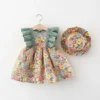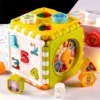Breastfeeding is a rewarding experience that offers numerous benefits for both mothers and their babies. However, many new moms worry about various health concerns during this time, including the risk of breast cancer. If you find yourself asking, “Can you get breast cancer while breastfeeding?” you’re not alone. This article explores the relationship between breastfeeding and breast cancer, offers tips for monitoring your breast health, and emphasizes the importance of awareness during this crucial period.
Understanding Breast Cancer
Breast cancer is one of the most common cancers among women, affecting millions globally. It occurs when cells in the breast begin to grow uncontrollably, forming tumors. While the exact cause of breast cancer is not fully understood, several risk factors are known to contribute to its development, including genetics, age, hormonal factors, and lifestyle choices.
During the postpartum period, women are particularly vigilant about their health, especially if they have a family history of breast cancer or other risk factors. Understanding breast cancer, including its types and common signs, is essential for all new mothers.
Breastfeeding and Breast Cancer Risk
Research has shown that breastfeeding can reduce the risk of developing breast cancer. Several studies suggest that women who breastfeed for extended periods may have a lower risk of breast cancer compared to those who do not breastfeed. The reasons behind this protective effect include:
- Hormonal Changes: Breastfeeding alters hormone levels in the body, reducing exposure to estrogen, which is linked to breast cancer risk.
- Cellular Turnover: The act of breastfeeding promotes the shedding of breast tissue, which may help eliminate cells that could potentially become cancerous.
- Delayed Menstruation: Breastfeeding often delays the return of menstruation, leading to fewer menstrual cycles and a reduced overall lifetime exposure to hormones that can contribute to cancer risk.
While breastfeeding has protective benefits, it is essential to note that it does not eliminate the risk of breast cancer. Awareness of personal risk factors and regular monitoring are crucial for early detection.
Signs and Symptoms to Monitor
Being proactive about breast health is essential for new mothers. Here are some common signs and symptoms of breast cancer that breastfeeding moms should be aware of:
- Changes in Breast Shape or Size: Noticeable changes in the shape or size of your breasts may be a cause for concern.
- Unexplained Lumps or Masses: Any new lumps or masses in the breast tissue should be evaluated by a healthcare provider.
- Nipple Discharge: Unusual discharge from the nipple, especially if it is bloody or occurs without squeezing, should be investigated.
- Skin Changes: Look for changes in the skin, such as redness, dimpling, or thickening, which can indicate potential issues.
It’s essential to perform regular self-examinations and schedule routine check-ups with your healthcare provider to monitor breast health effectively.
Tips for Monitoring Your Breast Health
- Self-Examinations: Regularly performing breast self-exams can help you become familiar with the normal texture and appearance of your breasts. Here’s a step-by-step guide:
- Choose a Time: Perform the exam monthly, preferably a week after your period ends when breasts are less likely to be tender.
- Visual Inspection: Stand in front of a mirror and visually inspect your breasts for any changes in shape, size, or skin texture.
- Physical Examination: While lying down, use the pads of your fingers to feel for lumps or unusual changes in breast tissue. Check each breast thoroughly, including under the armpits.
- Regular Check-Ups: Schedule regular appointments with your healthcare provider for professional breast examinations. Discuss any concerns or changes you notice during your self-exams.
- Educating Yourself: Familiarize yourself with breast health resources and breast cancer awareness organizations. Understanding your body and risks is crucial for informed decision-making.
- Healthy Lifestyle Choices: Incorporate lifestyle changes that can positively impact your breast health, such as:
- Maintaining a balanced diet rich in fruits, vegetables, and whole grains.
- Engaging in regular physical activity.
- Limiting alcohol consumption and avoiding tobacco.
When to Seek Medical Advice
It’s important to be vigilant and seek medical advice if you notice any unusual symptoms. Here are situations that warrant a discussion with a healthcare professional:
- Persistent Lumps: If you discover a lump that does not go away after your menstrual cycle or seems to change, consult your doctor.
- Significant Changes: Any noticeable changes in your breasts, such as swelling, persistent pain, or changes in the nipple, should be evaluated.
- Family History: If you have a family history of breast cancer or other risk factors, discuss a personalized monitoring plan with your healthcare provider.
Support and Resources
Navigating postpartum challenges can be overwhelming, and seeking support is essential. Numerous organizations and resources provide education and assistance for new mothers:
- Breast Cancer Awareness Organizations: Many organizations offer valuable information about breast health and resources for support.
- Support Groups: Connecting with other mothers can provide emotional support and practical advice on breastfeeding and health concerns.
- Healthcare Providers: Don’t hesitate to reach out to your healthcare provider for personalized guidance and support regarding your breast health.
Conclusion
The question, “Can you get breast cancer while breastfeeding?” is a valid concern for many new mothers. While breastfeeding can provide protective benefits against breast cancer, it does not eliminate the risk. Understanding the signs and symptoms of breast cancer, performing regular self-exams, and maintaining open communication with healthcare providers are essential for monitoring breast health.
By being proactive and informed, nursing mothers can navigate their postpartum journey with greater confidence, ensuring both their health and the well-being of their babies.
FAQ’s
- Can breastfeeding increase the risk of breast cancer?
A. No, breastfeeding is generally associated with a reduced risk of breast cancer. However, it does not eliminate the risk. - What are the early signs of breast cancer to watch for while breastfeeding?
A. Signs include changes in breast shape or size, unexplained lumps, nipple discharge, and skin changes like redness or dimpling. - How often should I perform self-examinations?
A. It’s recommended to perform self-exams monthly, ideally a week after your period ends. - When should I contact my doctor about breast health concerns?
A. Contact your doctor if you notice persistent lumps, or significant changes in your breasts, or have concerns related to a family history of breast cancer. - Are there any lifestyle changes that can help reduce breast cancer risk?
A. Yes, maintaining a balanced diet, engaging in regular exercise, limiting alcohol, and avoiding tobacco can positively impact breast health.









